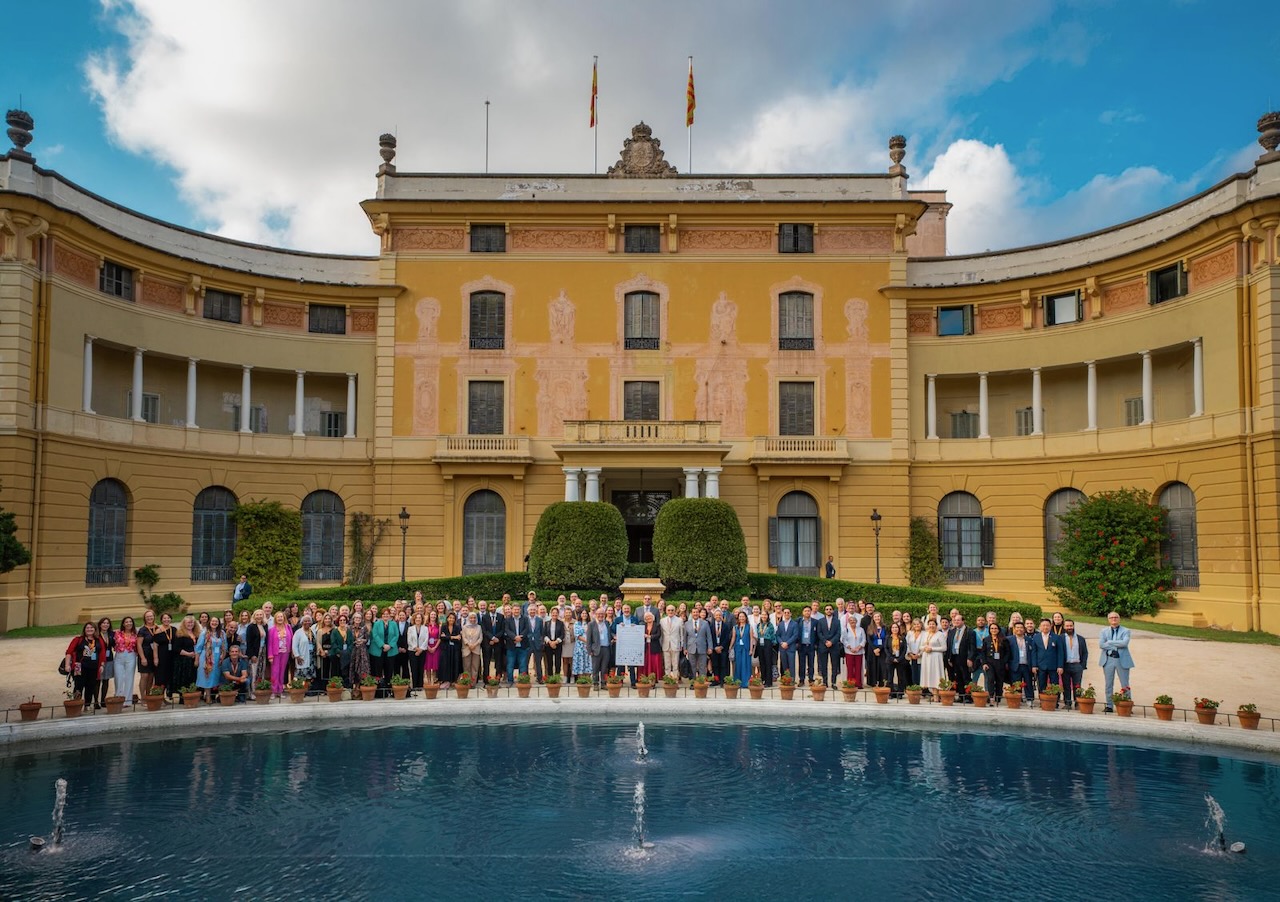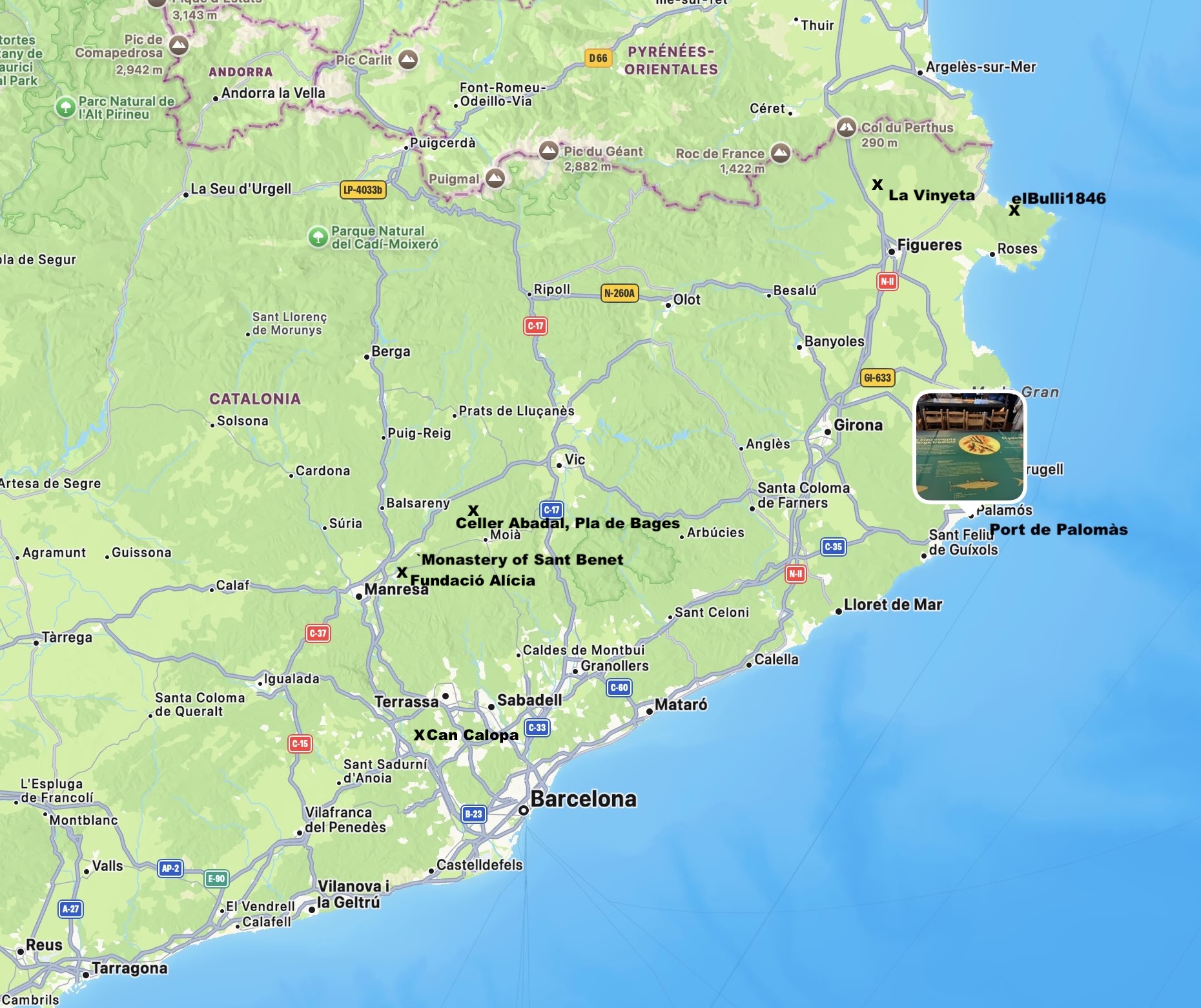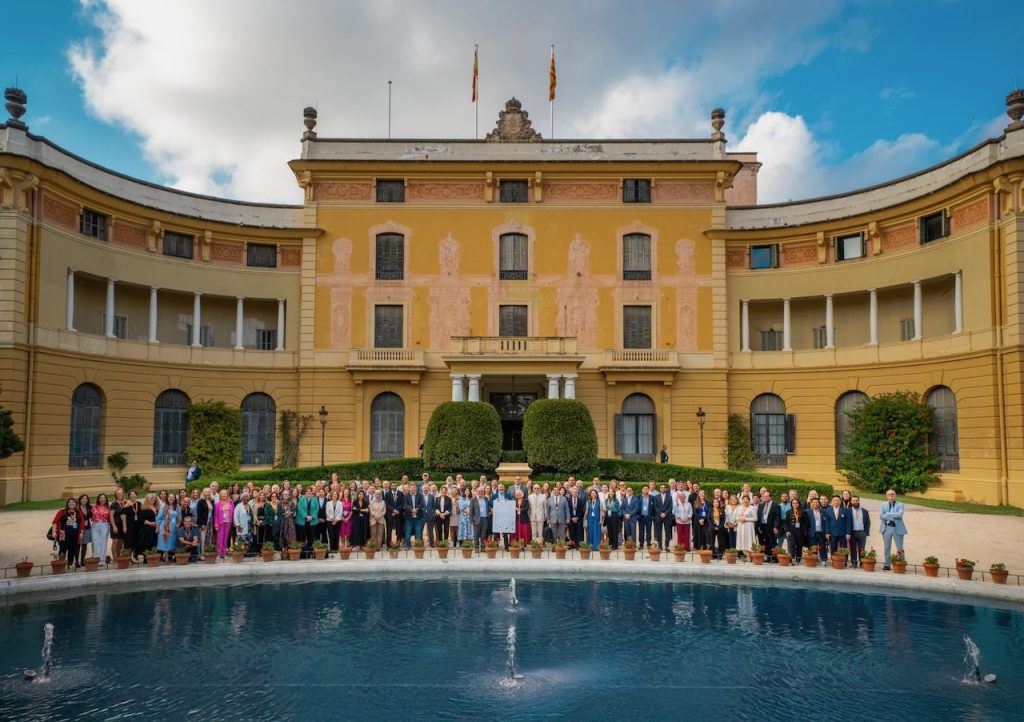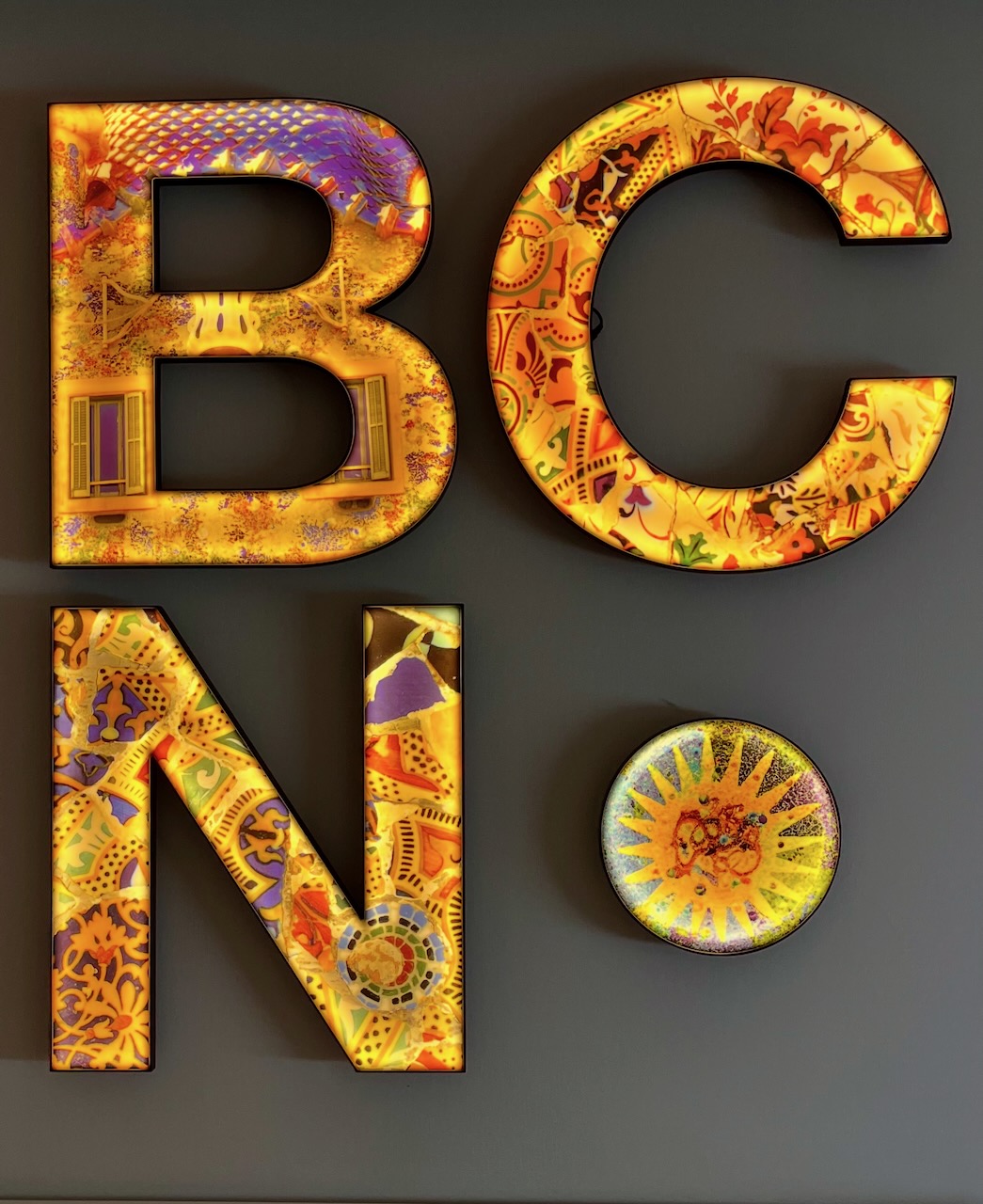 Barcelona! What image comes to mind? Freddie Mercury and Montserrat Caballé gifted Barcelona immortality with their memorable rendition, an unforgettable anthem; Goudí created magic in architecture and Salvador Dali is celebrated and honoured with a major museum at nearby Figueres. The city of Barcelona is vibrant and exciting but be sure to explore the wonderful world of Catalonia too, a land of contrasts and coasts, history and gastronomy, a selection of which I was privileged to experience recently and, as you read this, I revisit as part of the Judging Panel for the European Young Chef Award.
Barcelona! What image comes to mind? Freddie Mercury and Montserrat Caballé gifted Barcelona immortality with their memorable rendition, an unforgettable anthem; Goudí created magic in architecture and Salvador Dali is celebrated and honoured with a major museum at nearby Figueres. The city of Barcelona is vibrant and exciting but be sure to explore the wonderful world of Catalonia too, a land of contrasts and coasts, history and gastronomy, a selection of which I was privileged to experience recently and, as you read this, I revisit as part of the Judging Panel for the European Young Chef Award.
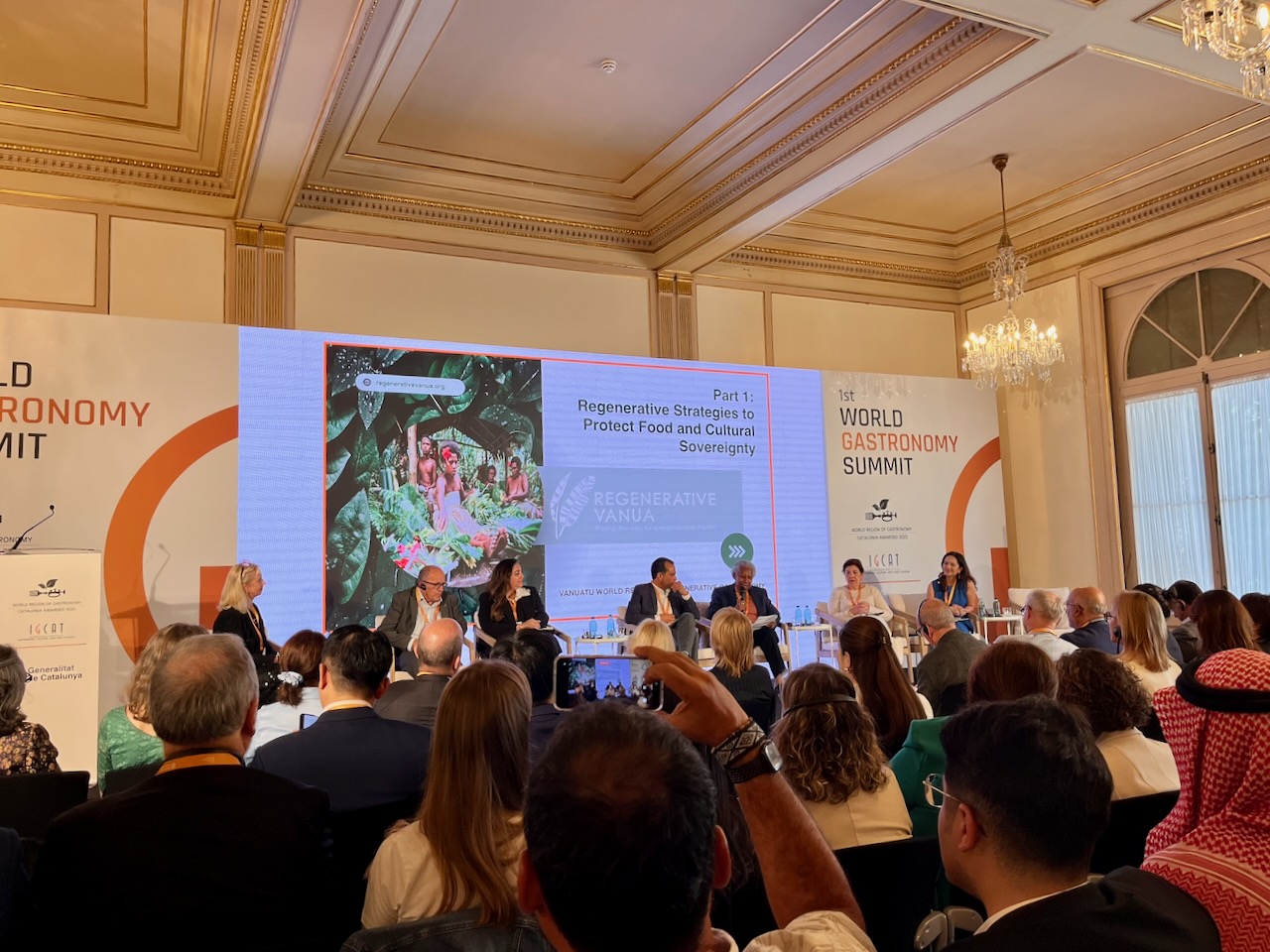
Catalonia is World Region of Gastronomy 2025, an initiative promoted by the International Institute of Gastronomy, Culture, Arts and Tourism, and as such, Barcelona hosted the 1st World Gastronomy Summit this September at the Pedralbes Royal Palace, set amidst stunning gardens in the heart of the city. The programme was filled with inspiring presentations from across the world: from the Pacific islands to the Arctic Circle, including such themes as Food at the Heart of Culture: A New Paradigm for Policy & Practice; UNESCO Foodways; Catalan Cuisine Past & Future, and Shaping Future Policies.
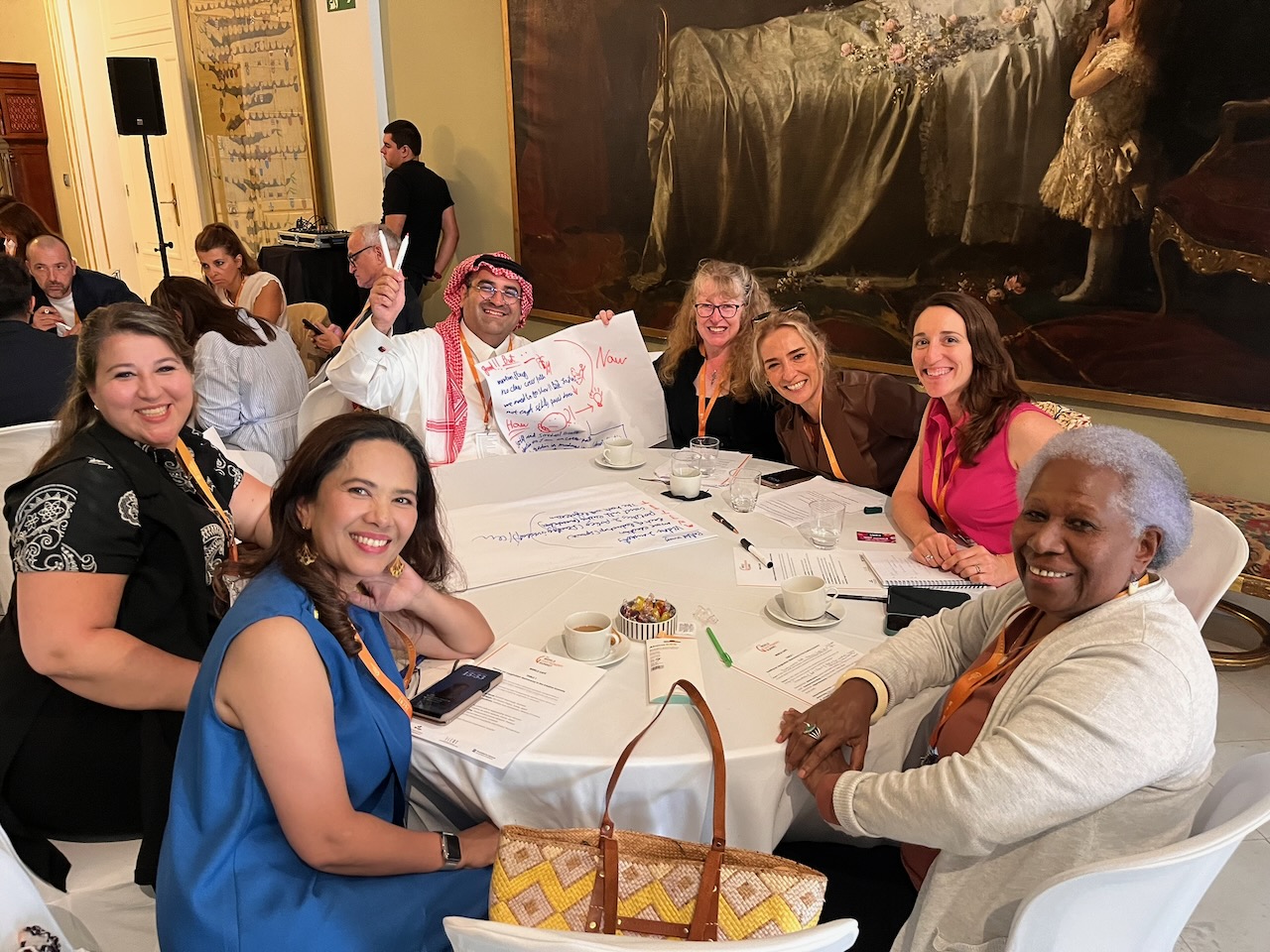
After a wonderful garden lunch, weaving through the grazing tables, beautifully presented and deliciously tasty, we resumed with The World Café comprising a salon of tables each with their own topic. Ours was Feeding our Imagination: Gastronomy in the Creative Economy. As Provocateur, it was my task to break the ice with ideas for utopia and dystopia then let the debate begin. Majed Almuhanna, Head of Research, Culinary Arts Commission, Saudi Arabia (pictured beside me) did a sterling job reporting our findings on stage.
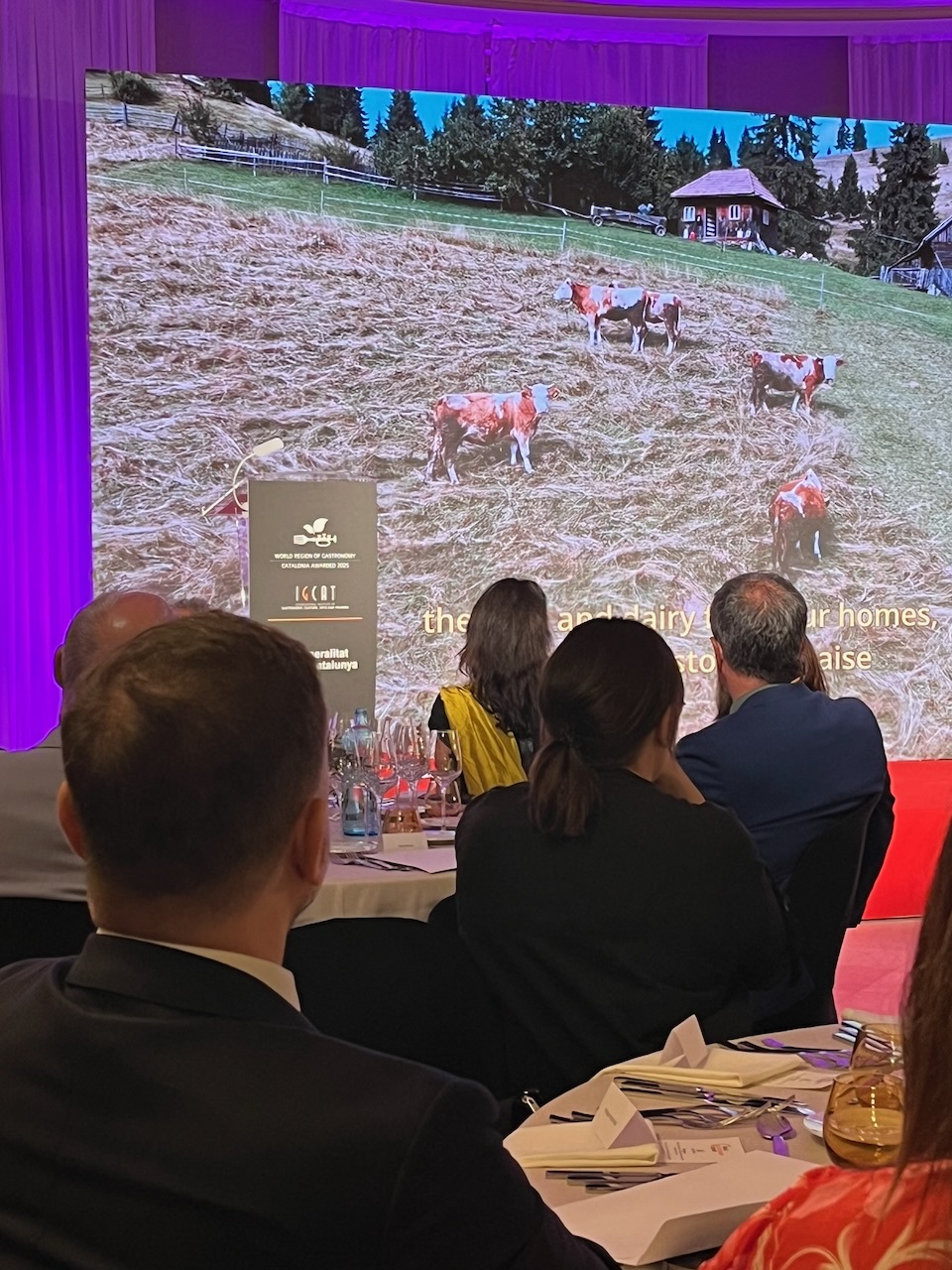
The day passed before we knew it. Official photographs complete, we gathered in the ornate dining hall for an impressive dinner of local produce and a viewing of the Food Film Finalists. We covered considerable ground and have an exciting future ahead; a highly illuminating day during which, hopefully, I gave as well as received. It was both a pleasure and an honour to reconnect with friends and colleagues from Harghita, Dalmatia, Menorca, Catalonia, Saimaa and Trondheim-Tröndelag, and to make new enduring connections across the globe.
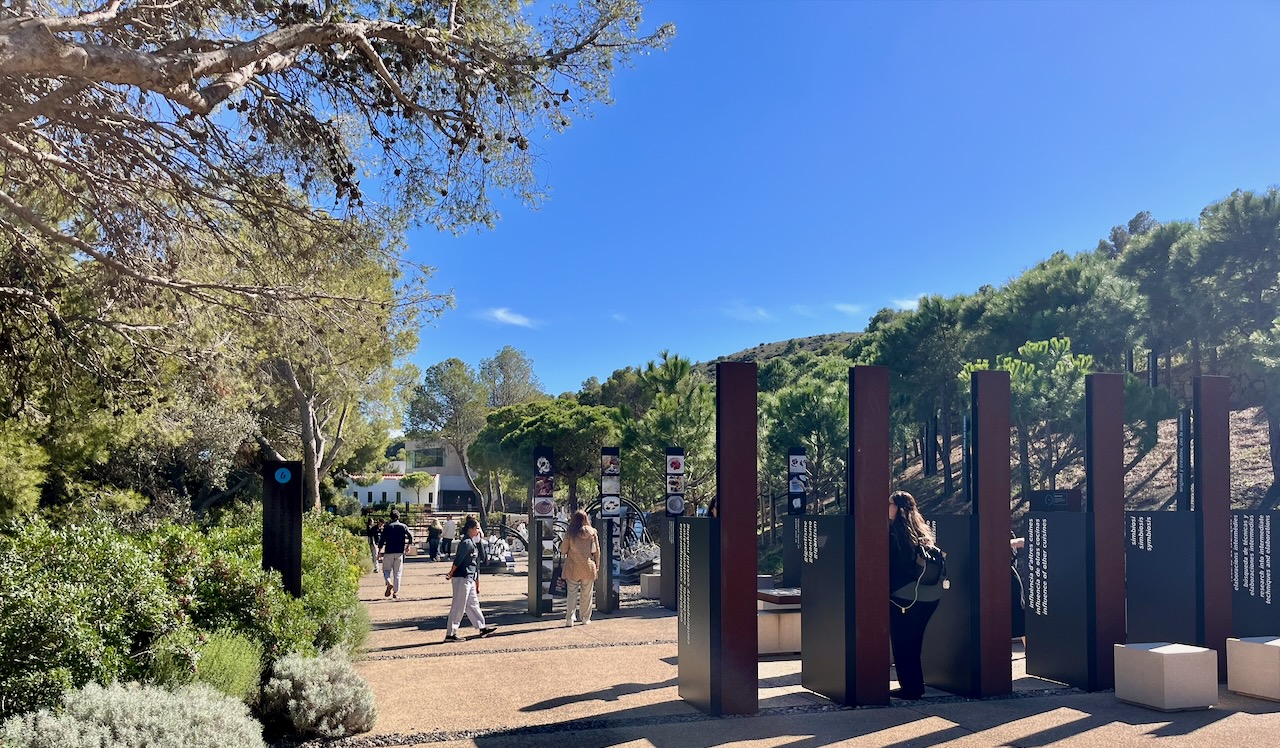
Before the Summit, I was fortunate to savour a flavour of what unique gastronomy perspectives Catalonia has to offer, starting with elBulli1846. elBulli1846 is the first restaurant in the world to evolve into a museum dedicated to safeguarding the legacy of the restaurant elBulli. Creating a paradigm shift in cuisine, Chef Ferran Adrià founded this world dining destination by the attractive seaside town of Roses, north of Barcelona. Adrià is often associated with molecular gastronomy although I am told he preferred the term deconstructed cuisine. elBulli closed its doors in 2011 and thereafter formed the Foundation, sharing the experiences, innovation, cross-disciplinary inspiration and conceptual fine dining. Why Bulli? Because the couple who originally owned the property had French bulldogs. Why 1846? Because 1,846 recipes were created here by Adrià and every one of them is depicted in some form or fashion within the museum.
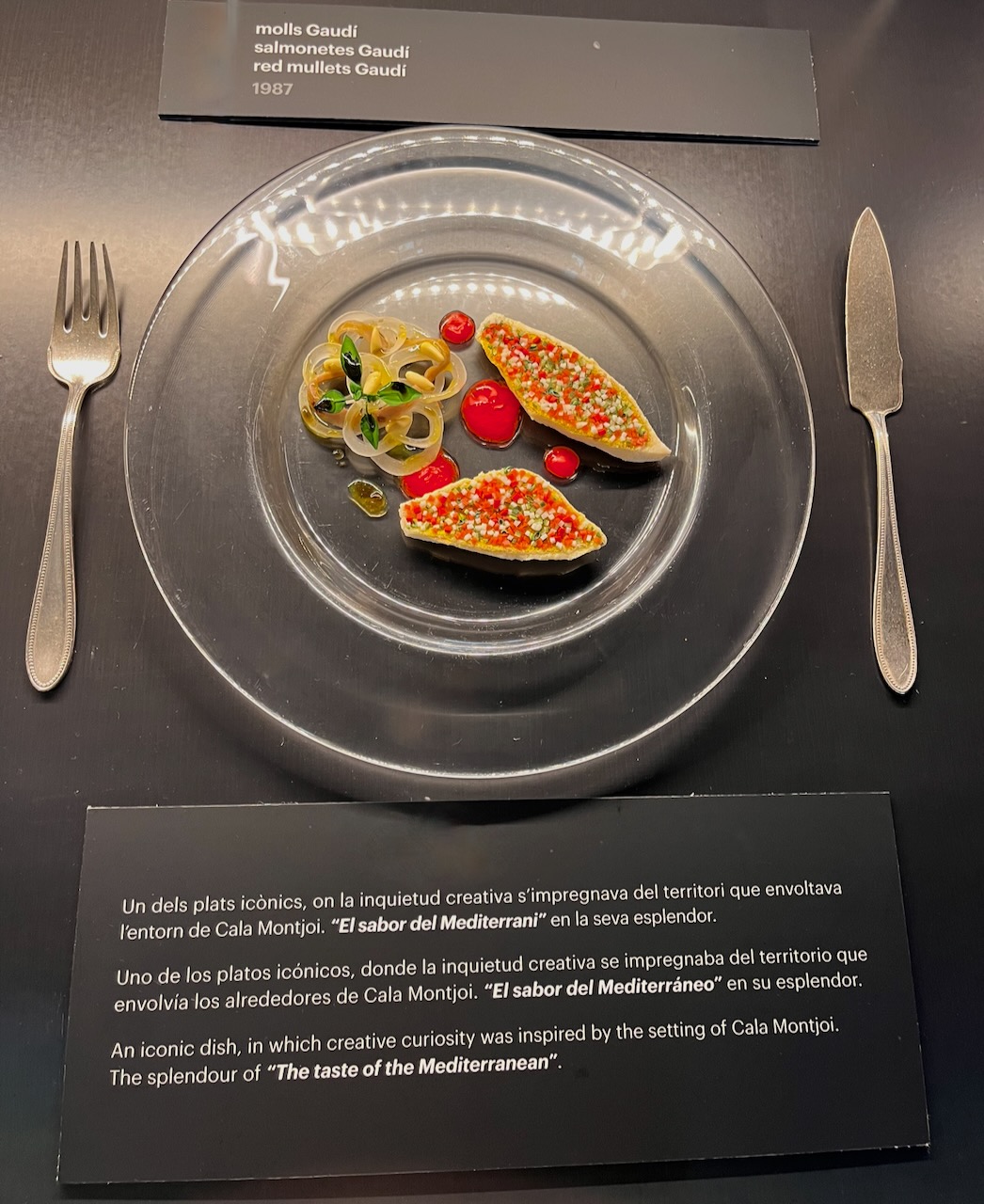 To reach elBulli1846, one passes through dramatic coastal scenery on twisty narrow roads with precipitous cliffs and hairpin bends. We were transported on an executive coach that could barely fit the road let alone let anyone pass, so for the final half hour we had a police escort, clearing a path for us and adding drama to the occasion! Not knowing what to expect, the destination was impressively laid out in terms of landscaping and architecture: leading you through al fresco art installations displaying his methodology and onwards, curving and punctuating the scene with reflections on art, dining experiences and innovation. You need several hours for this experiential visit. Indoors, our eyes devoured every image on display: modelled and photographed food, dishes, utensils and equipment, all immaculately lit and intricately described.
To reach elBulli1846, one passes through dramatic coastal scenery on twisty narrow roads with precipitous cliffs and hairpin bends. We were transported on an executive coach that could barely fit the road let alone let anyone pass, so for the final half hour we had a police escort, clearing a path for us and adding drama to the occasion! Not knowing what to expect, the destination was impressively laid out in terms of landscaping and architecture: leading you through al fresco art installations displaying his methodology and onwards, curving and punctuating the scene with reflections on art, dining experiences and innovation. You need several hours for this experiential visit. Indoors, our eyes devoured every image on display: modelled and photographed food, dishes, utensils and equipment, all immaculately lit and intricately described.
We absorbed representations of his links with publications, artistes, installations and display cases before standing in his original restaurant, overlooking the bay, preserved in all its glory. What a start to my first Catalonian adventure.
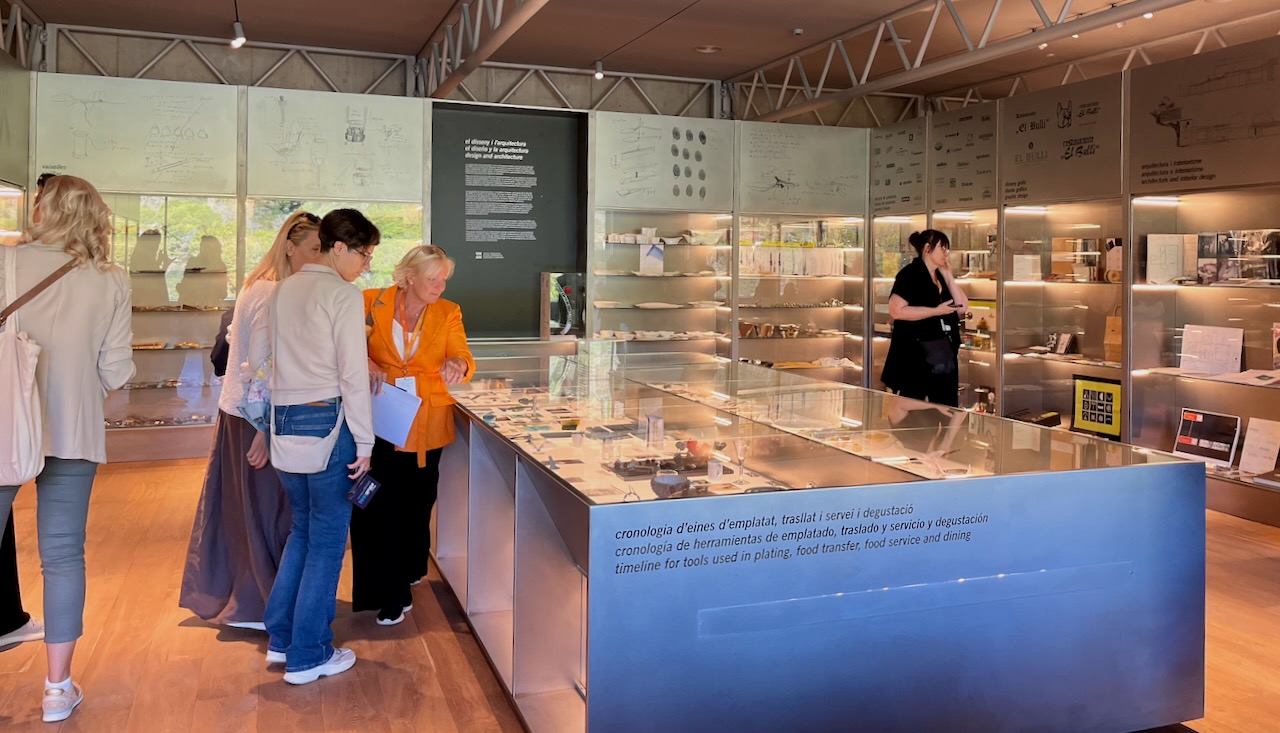
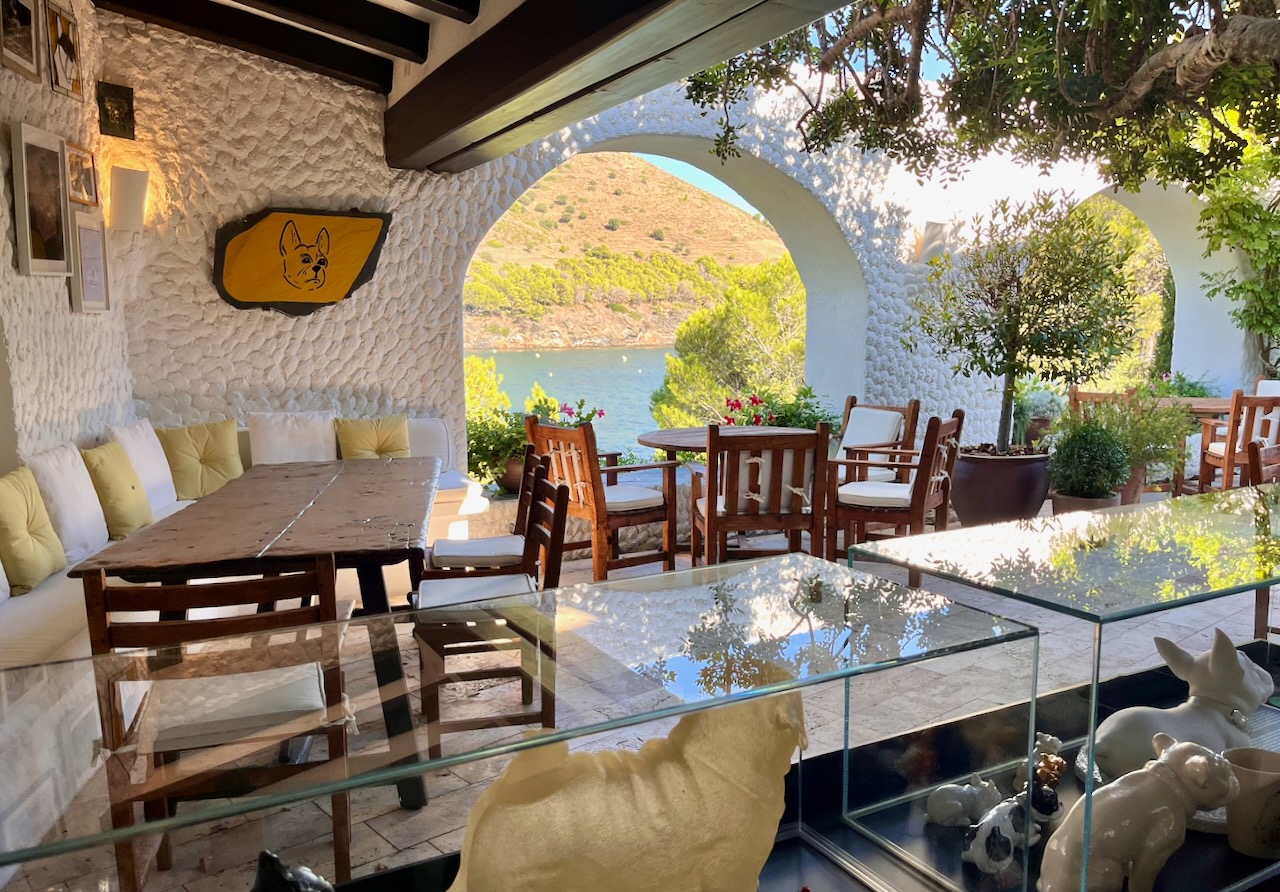
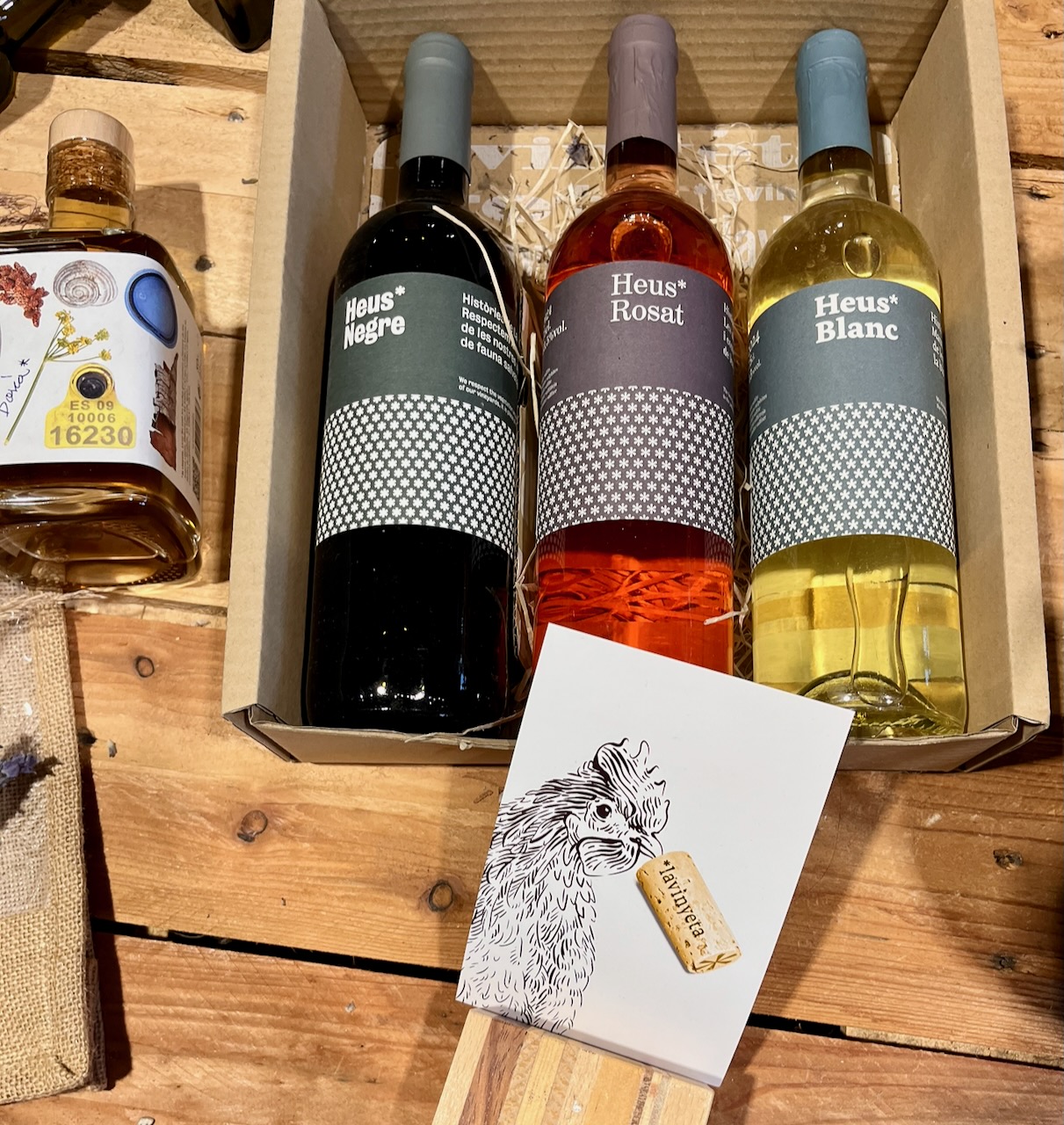
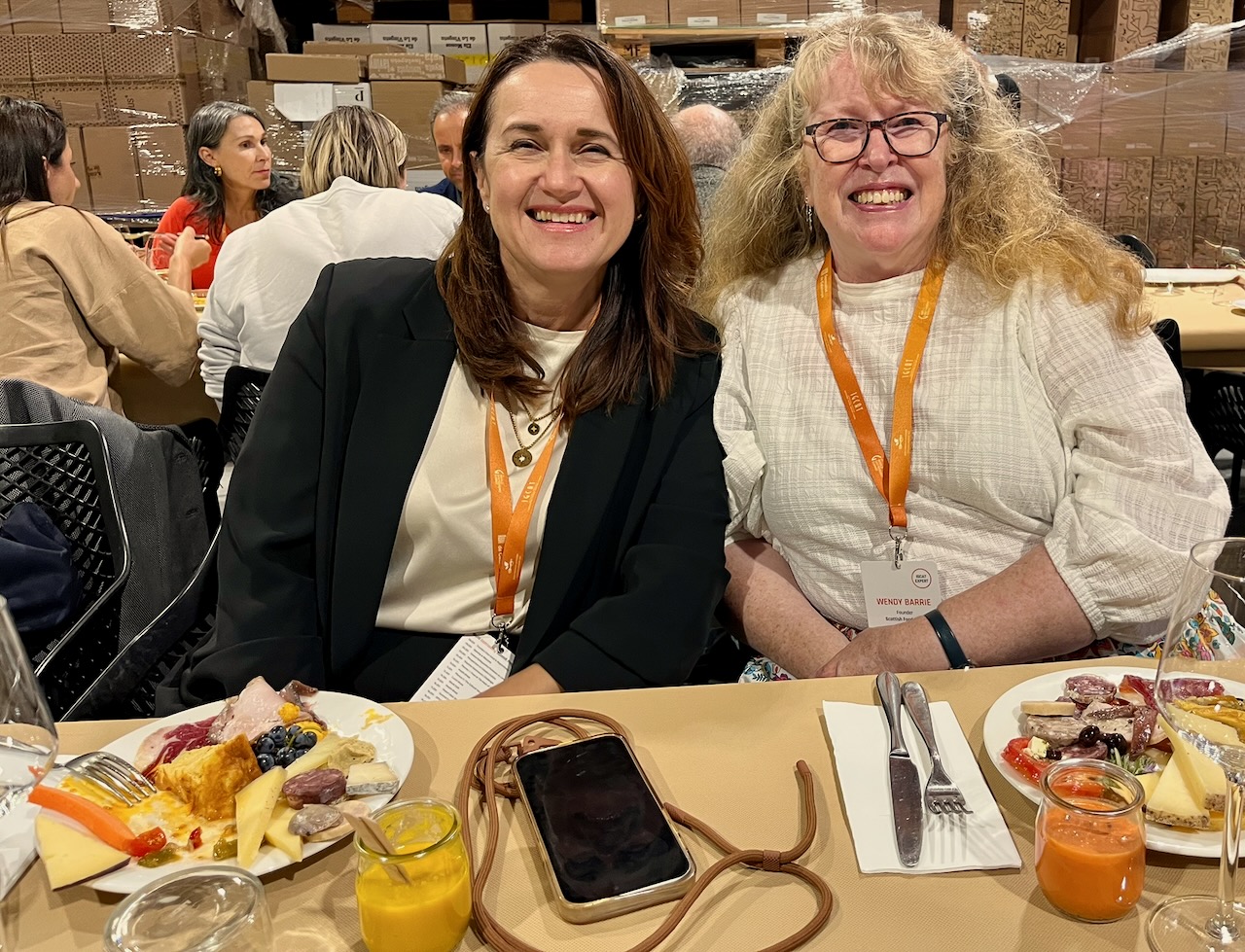
Next stop La Vinyeta, Mollet de Peralada, an organic award-winning vineyard, famous for its agroecological and circular model, where we were warmly greeted by our cheery hosts. Their enthusiasm was infectious and the patter delightful as we listened to life among the vines and olive groves. How they used sheep to tackle weeds among the vines with spring and autumn grazing and the happy bees making honey among the chemical free flora. We were then treated to an array of local produce: charcuterie, cheeses, their own eggs and colourful salads. A wonderfully convivial informal evening and an absolute pleasure to experience.
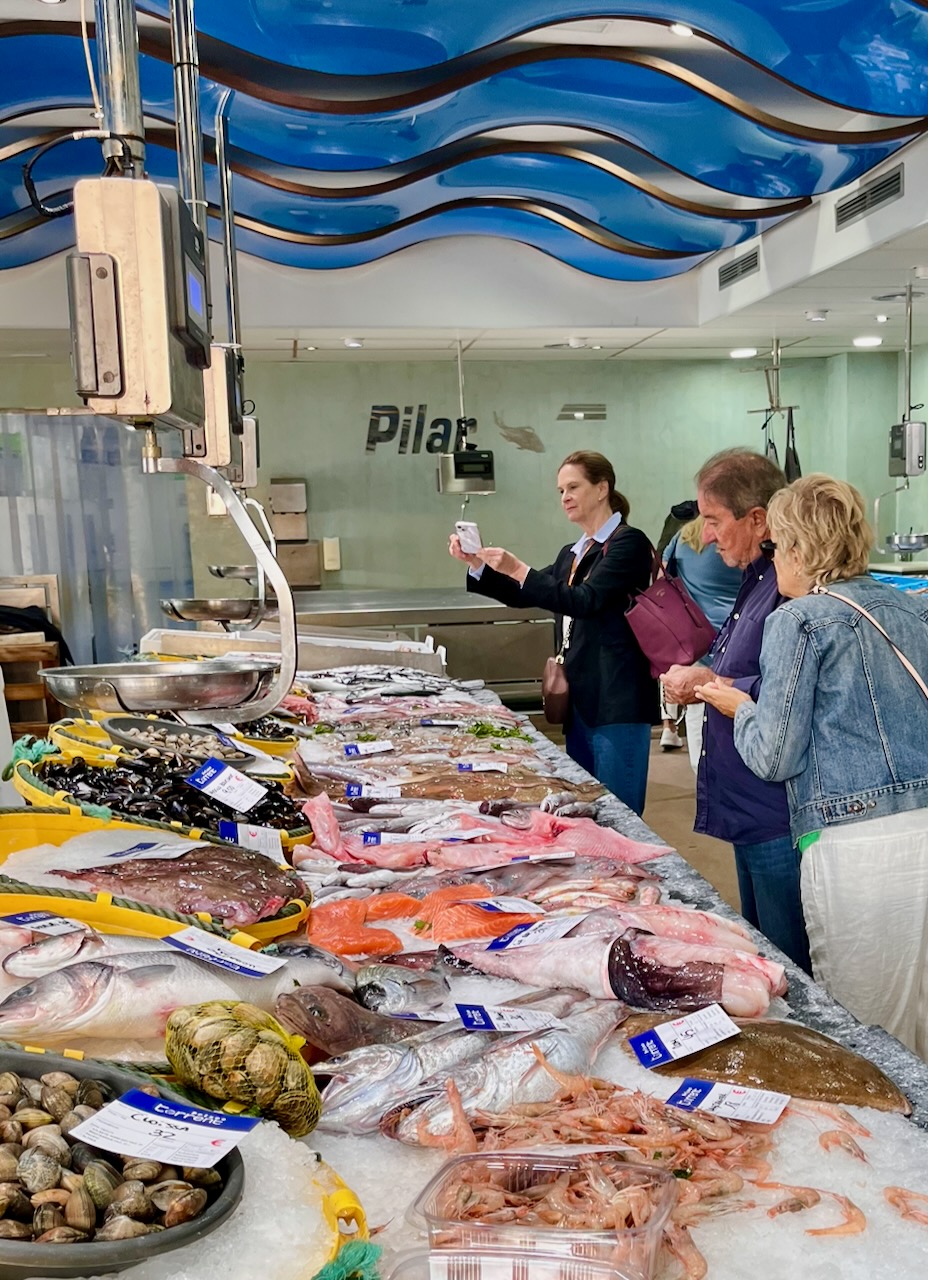
The following morning we were off to Port de Palamàs, a charming fishing harbour buzzing with activity and with a very impressive building right on the pier. A template for a world class seafood attraction, the building is practical and beautiful, useful and educational. Upstairs is a visitor centre/education room/tasting kitchen with the best ever tables – illuminated and designed depicting local fish and facts – and panoramic 360° views of the fishing fleet and the silvery Mediterranean. Downstairs are entrances to a thriving fish market where locals were scooping up delicacies for their next meal, an exceptionally fine fisheries museum and a lovely gift shop too. A lesson for Scotland methinks.
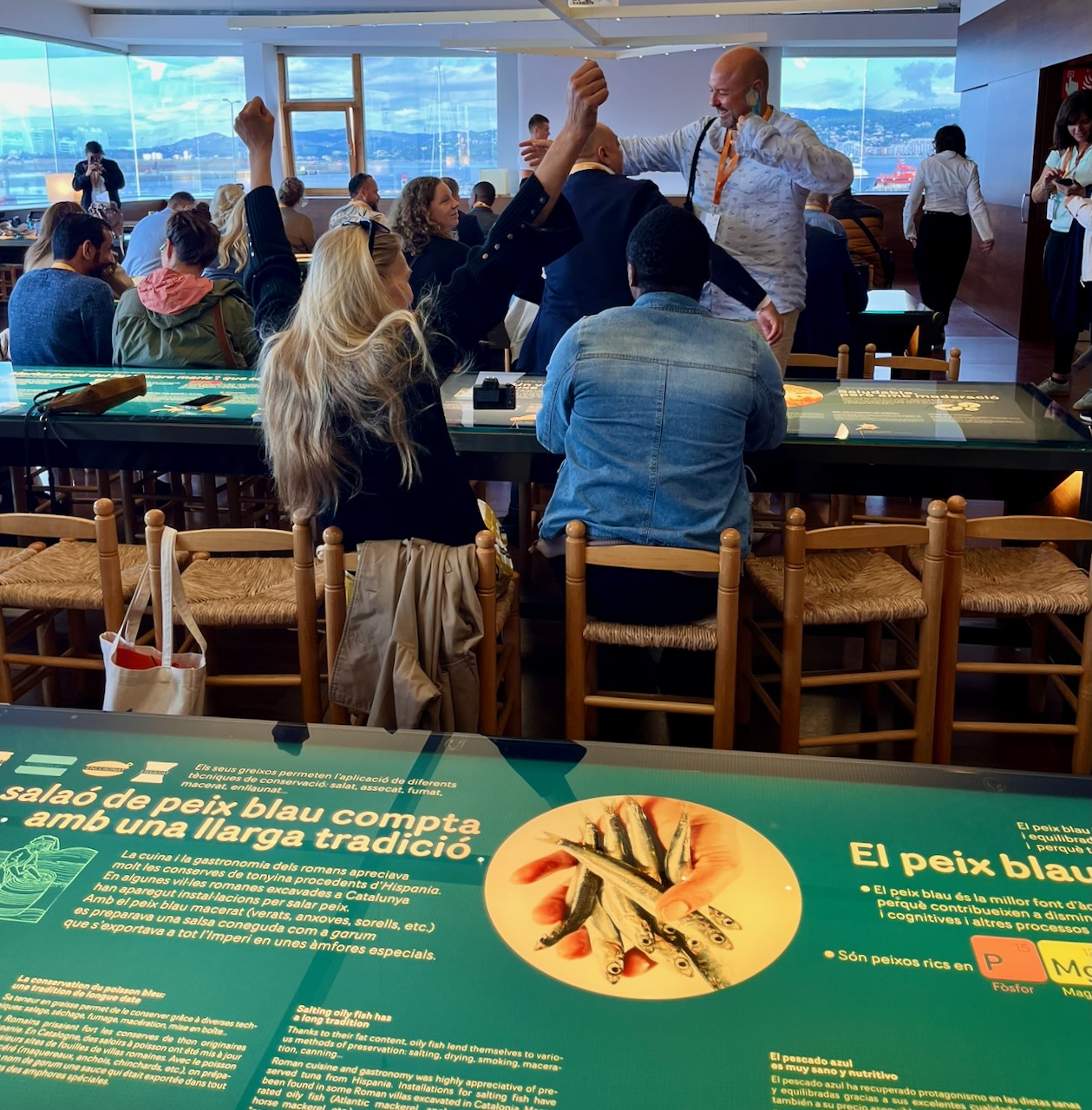
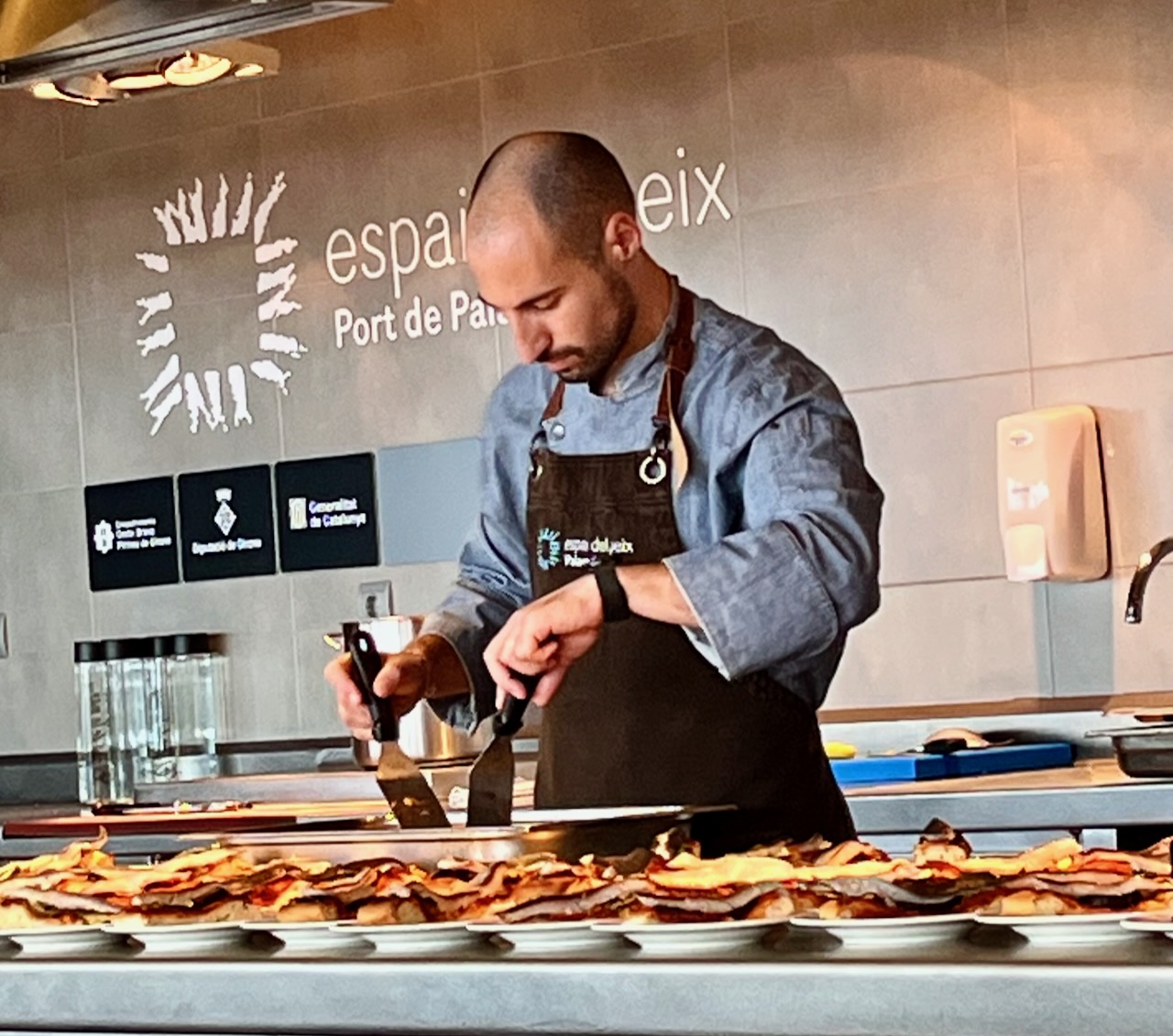
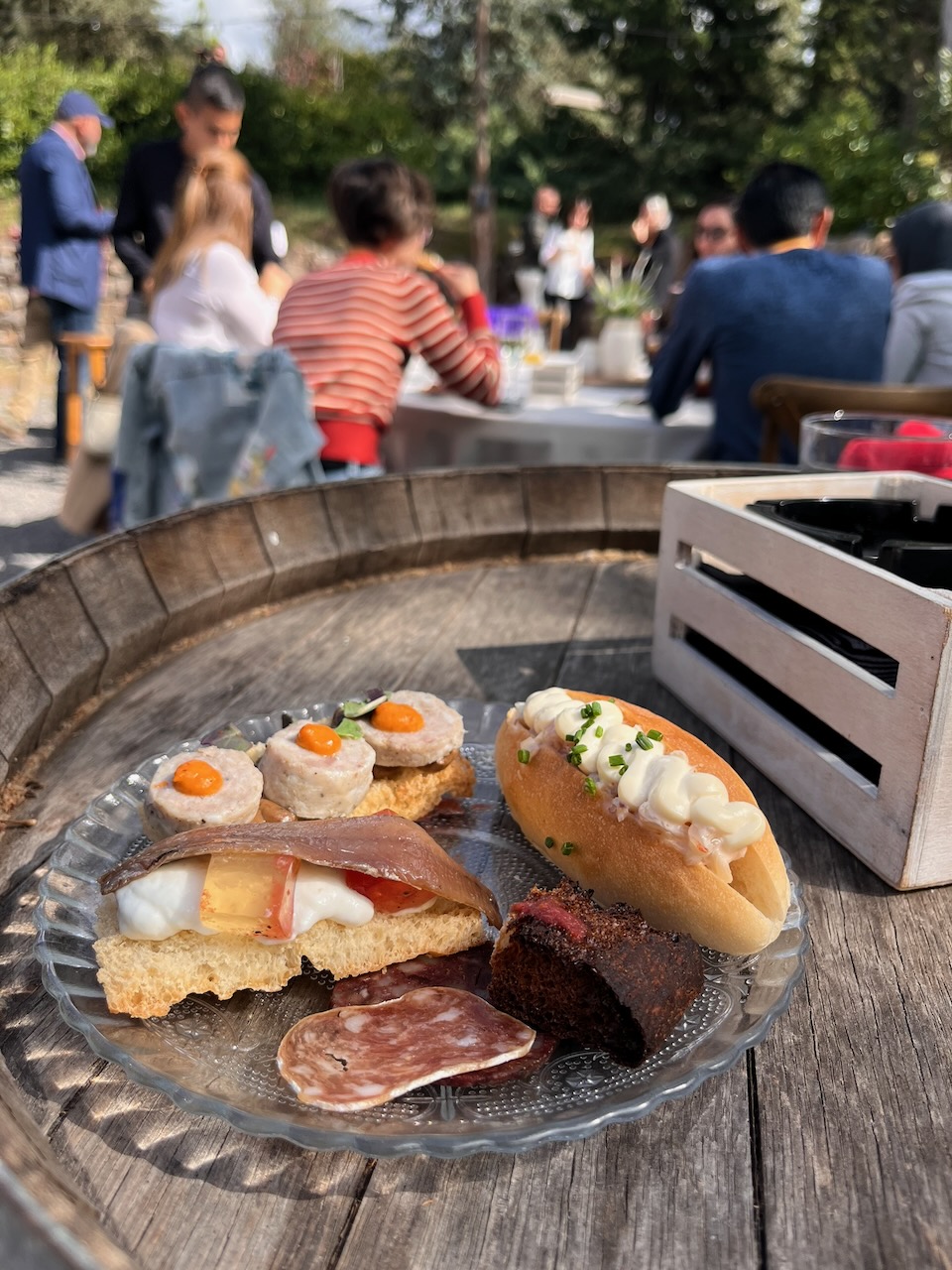
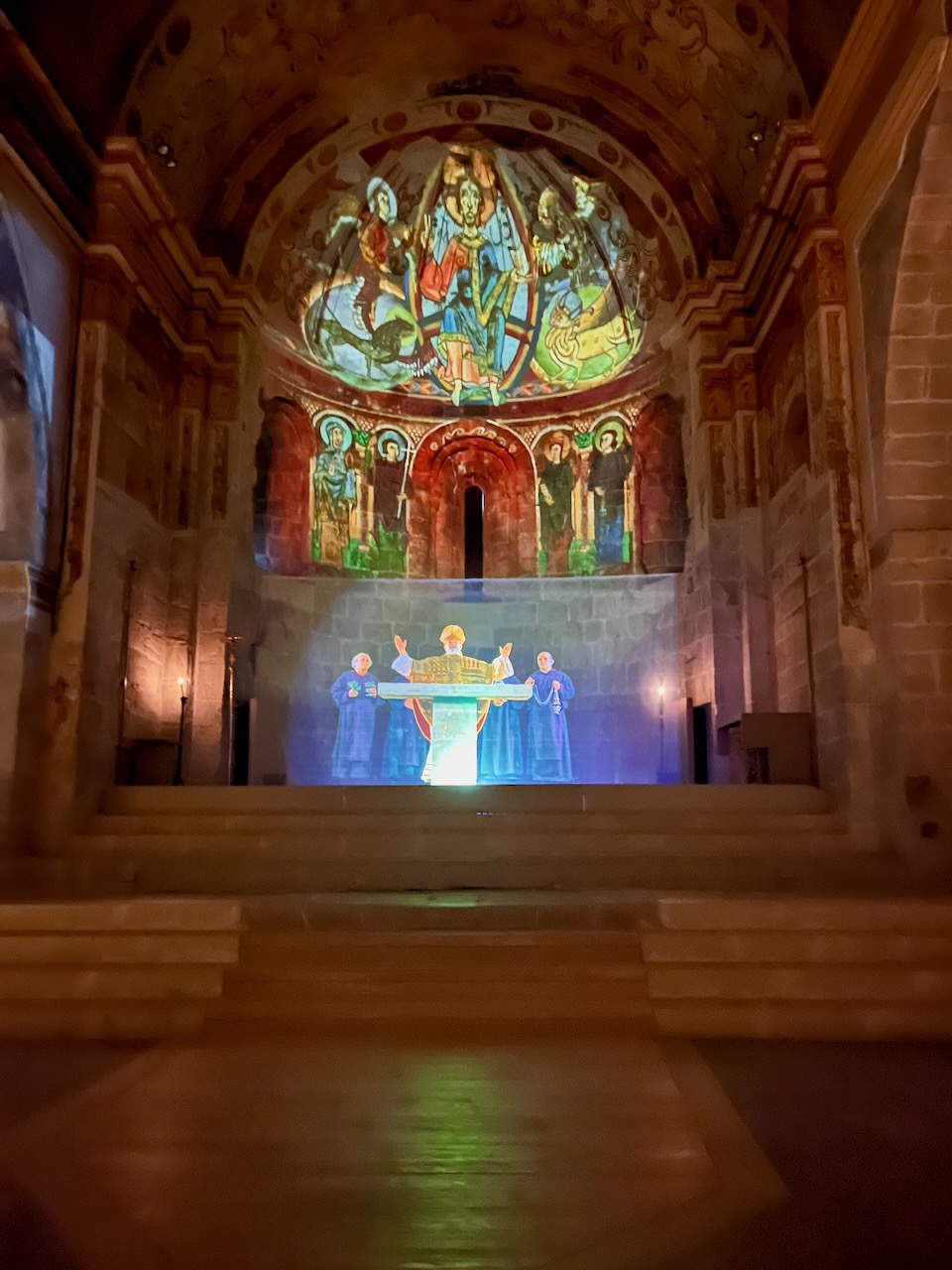
Lunch was at Celler Abadal, an inland vineyard set amidst landscaped grounds, green and calm. In the gracious courtyard we browsed tables brimming with produce and selected vine tomatoes and salamis, olives and rustic breads, canapes and dainty cakes. Each day there were round table conversations on set topics to enable us all to be heard and to speak freely, sharing good practice and facing challenges together. This day, the subject was Regenerative Tourism & Food Heritage, hosted by the vineyard after lunch and moderated by me after which we were given a tour of the breathtaking Monastery St Benet before dining at the charming Hotel Mas de la Sala where the views over the Catalonian countryside were a joy.
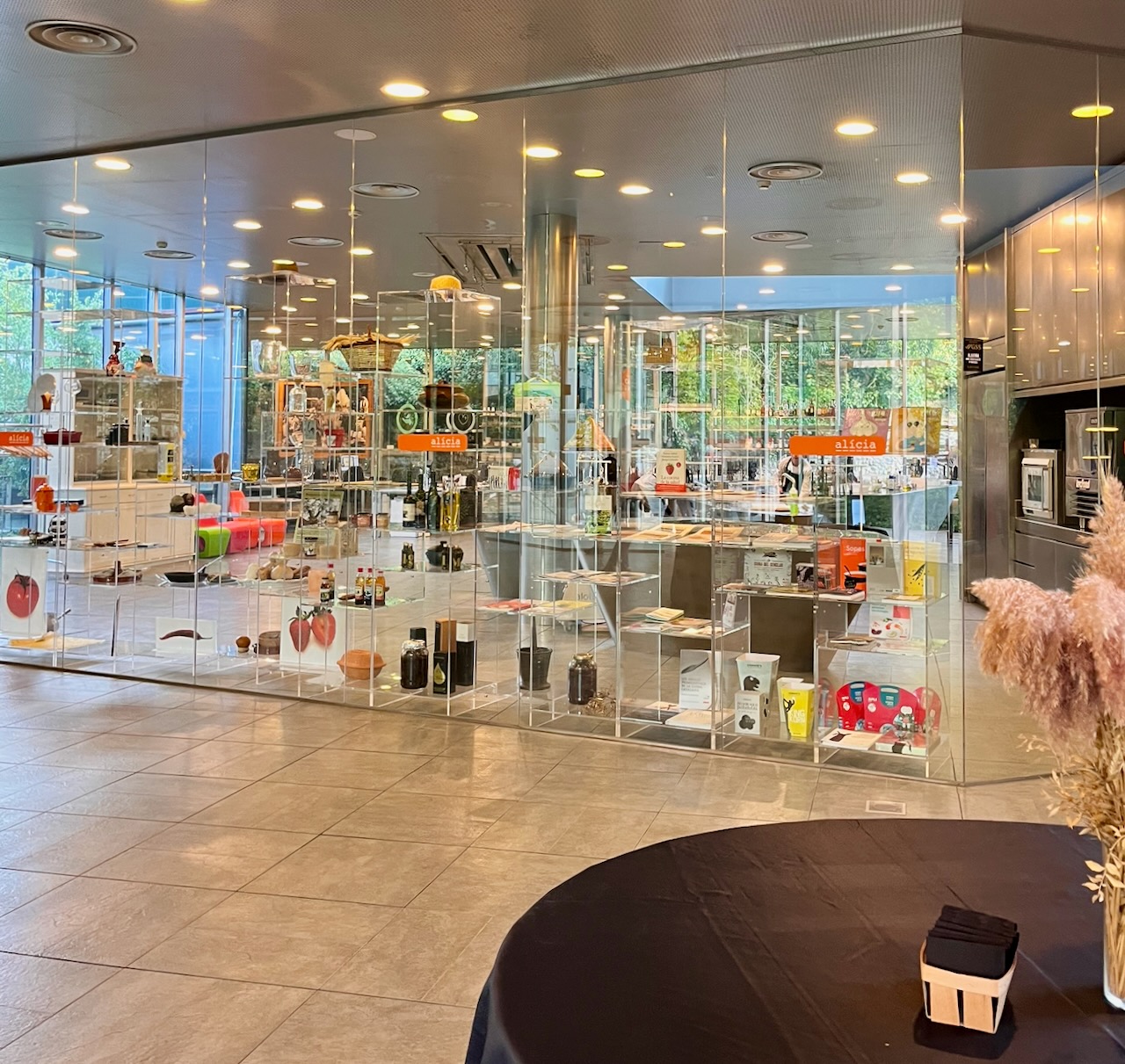
Nearby, and our next visit, was Fundació Alícia, a quite extraordinary cuisine research centre, looking at ways to improve diets and address healthy eating habits, particularly those with dietary restrictions. The centre is fascinating and innovative in both architecture and content. Impressive. The day ended at Can Calopa, the urban winery and social project nestled in the hills behind Barcelona, coming full circle in readiness for the Summit the following day. The estate produces fine wines, in harmony with the beautiful tapas under the stars.
The warm welcome we received from farmers, chefs, families, curators, guides, hoteliers and Catalonian Tourism representatives was absolutely wonderful and greatly appreciated by us all. Catalonia is certainly worthy of their Gastronomy title and we were introduced to many dozens of Catalonians who are proud to be part of it. My sincere thanks to the region for their hospitality, passion and generosity.
